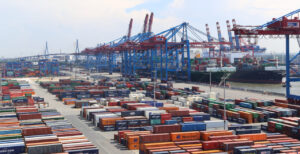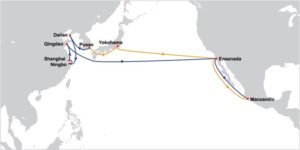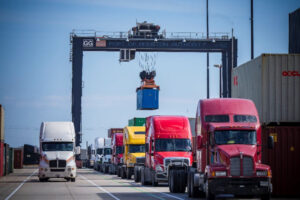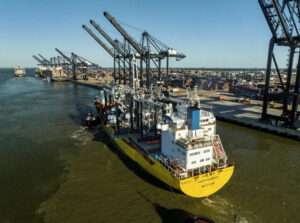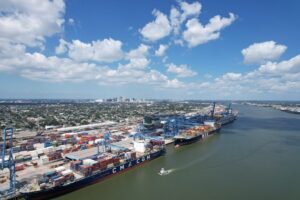The port call collaboration platform PortXchange has joined forces with Future is Smart (FIS), a Peruvian shipping consultancy firm, to launch the platform in Peru in the coming months.
This market launch will make PortXchange available to all ports and parties that operate in the country. Peru is the first Latin American country that will have access to this innovation.
“We are excited to launch our Port Call Collaboration platform in Peru. Having worked in Peru myself, I know how diverse the shipping operation is and how seasonality can add to the complexity.
“With PortXchange we enable all parties involved in a port call to plan and optimize together, helping them to take decisions earlier on in the process,” Dita Bruijn – Director of Operations PortXchange.
PortXchange will be represented in Perú by consultancy firm FIS and invites the port community to work together to achieve efficient port calls that result in considerable reduction of cost and CO2 and NOx emissions. The success of PortXchange highly depends on the successful collaboration between all parties involved in port operations, such as agents, shipping lines, and maritime service providers.
“With PortXchange we have now the opportunity to count with a new and cutting-edge platform. In that sense, Peruvian ports will be at the same level as those important ports where the platform is already in use, not only for the benefit of the shipping community, but also to leave a legacy for future generations with a better environment. We are very proud about this launch and for our partnership with PortXchange,” said Augusto Montoya, Managing Director FIS.
PortXchange started as the PRONTO project in Rotterdam, after successful trials PortXchange was launched as an independent organization in August 2019. Since then the platform has been implemented in the ports of Felixstowe, Moerdijk, Algeciras and Houston.
Maersk and Shell are the launching customers of PortXchange, they are exploring the potential of this platform for the reduction of gas house emissions in the global maritime world. The first results in Rotterdam already show a 30% reduction in idle time of the ships.


